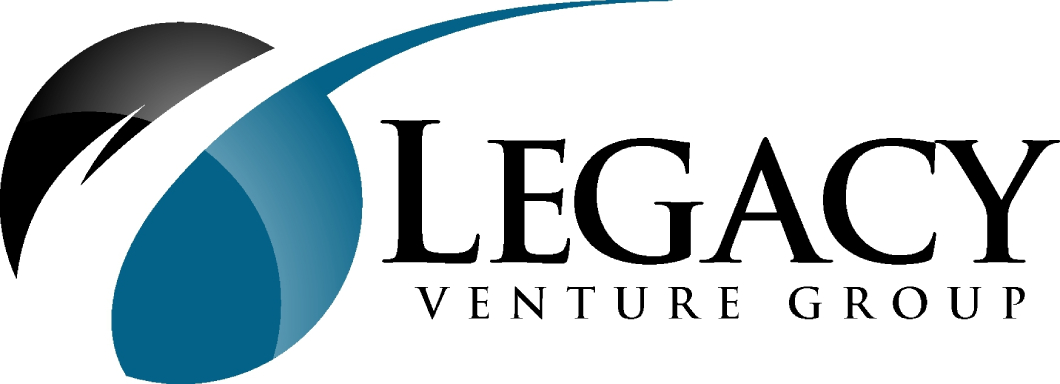

Selling a Business
You have devoted your time, money, and energy into building, running, and operating your business. Let us help you get the most out of your business.

Business Listings
Click here to view our current business for sale listings. Not all business listings we have for sale are listed due to confidentiality. If you don’t see what you are looking for, please contact us.

Buying a Business
Buying a business can be a complicated procedure, from finding the right one to working out all the details required for a smooth transfer of ownership.
BUSINESS SALES, MERGERS & ACQUISITIONS
You deserve the best – the best Buyer, the best price, and the best business broker support. The Legacy Business Broker Tampa team has helped business owners in Florida and around the country find the right person to carry on their business legacy. Legacy Business Brokers has a great track record of helping business owners like you sell privately owned businesses by confidentially marketing around the globe. Our business for sale slogan is “Sell a Business, Share a Legacy.”Sell your business confidentially with Legacy.
If you need a caring and experienced business broker in Tampa FL, please reach out to us for your free ebook and obligation-free consultation.

SELL A BUSINESS, SHARE A LEGACY
Find the right person for your business by confidentially reaching around the globe. Take advantage of Legacy Venture Group Business Brokers’ free initial consultation – even if you don’t think you can sell your business. Our business broker Tampa team can help business owners like you maximize the value of your company and prepare you for transferring business ownership successfully.
Use our expertise in buyer contact, Comprehensive Business Review preparation, marketing, pricing, negotiation, and confidentiality. You are selling more than just a business, your sharing a part of your Legacy. You will greatly benefit from using a highly experienced business broker in Tampa FL.
We help business owners answer these questions:
- When is the right time to sell my business?
- How do I sell my business and maintain confidentiality from employees, customers, and competitors?
- What is my business worth and how do I defend that price to someone who wants to buy a business? Do I need a full business valuation?
- How does the whole process work when I want to sell my business?
BUY A BUSINESS, BEGIN A DREAM
Most buyers of businesses seek to make a good investment that gives them personal satisfaction. That is why most buyers won’t settle for working for someone else. Many who contact our offices are first-time buyers. Legacy Venture Group Business Brokers works to help buyers through the process. We listen to your needs and wants.
We will work to help you find businesses that satisfy you. Legacy’s Business Broker Tampa team works together with professionals to help you with finance, business plans, and connections with competent resources. You get a full line business brokerage when you choose Legacy. We know you are buying more than just a business; you are fulfilling a dream.
When you need a confidential and experienced business broker in Tampa Florida or anywhere in the Florida market, Legacy Venture Group’s Business Brokers are ready to serve you.
Latest News and Updates
All the latest news on Selling and Buying Business. Browse the complete collection of articles.


Answers about Business Transition Advisors & Business Brokers
As TampaBay’s number one Business Brokerage firm, we figured we’d share some insights. You could also reach out to us for our free business seller success guide. We love sharing and educating. We’re proud to be your Tampa business broker. It was nearly 2 decades of experience, will probably share some valuable insights that will help you get the best price for your business. We find all the time that biz owners have the similar questions. Can I sell my business? What’s the best way to sell my business? What’s my business worth? How will I find out what my business is worth? Should I use a Business Broker? Was a business broker versus a business transition advisor? And so on. So lets’ get started.
Can I sell my business?
Yes, you can sell your business, but there are several factors to consider before doing so. Ensure that your financial records are up-to-date, that you understand the market conditions, and that you have a clear idea of what you want to achieve from the sale. It’s also crucial to determine if there are any legal or financial constraints that could impact the sale.
What’s the best way to sell my business?
The best way to sell your business often depends on the type of business, the industry, and your specific goals. Common approaches include listing the business for sale through online platforms, hiring a Business Transition Advisor or even just a business broker to reach a larger network of potential buyers, or directly approaching competitors or complementary businesses who might have a strategic interest in acquiring your business.
What’s my business worth?
The value of your business is determined by several factors including its financial performance, market position, growth potential, and the intangible assets it holds. The valuation can be influenced by industry trends, economic conditions, and how dependent the business is on its current owner.
How will I find out what my business is worth?
To accurately find out what your business is worth, it’s advisable to get a professional business valuation from a certified valuator. They will use various methods such as asset-based, earning value, and market value approaches to provide a comprehensive valuation.
Should I use a Business Transition Advisor or even a Business Broker?
Using a Business Transition Advisor business broker can be beneficial, especially if you lack the time or expertise to market your business effectively. Brokers have networks of potential buyers and can negotiate on your behalf to ensure you get the best possible deal. They can also handle much of the paperwork and regulatory requirements involved in the sale.A Business Transition Advisor generally has a more comprehensive approach, more tools, more training. They’re often certified by M&A Source, IBBA and National Association of certified valuation analyst. They can also hope you understand what elements are driving value in your business so that you can make a choice whether you want to make certain adjustments in order to gain a better return.
What is a business broker versus a business transition advisor?
A business broker primarily focuses on facilitating the buying and selling of businesses. They assist with marketing the business, finding buyers, and negotiating sales. A Business Transition Advisor , on the other hand, offers more comprehensive services that include preparing the business for sale, strategic planning for the owner’s exit, financial management, and sometimes post-sale transition planning. They provide guidance on how best to structure the business to enhance its value before the sale. A Business Transition Advisor generally works on businesses with at least $1 million in revenues and quite often higher than that. Typically not needed for smaller businesses.
When is the right time to sell my business?
The right time to sell your business is when it is performing well, showing steady income and profit growth. Additionally, favorable market conditions, such as high buyer demand in your industry, can also make it a good time to sell. Personal factors, like readiness to retire or change careers, also play a critical role.
How should I get organized so I ready to sell my business?
Even if you’re not planning to sell your business immediately, it’s wise to start organizing your records well in advance. A common obstacle that can derail business sales is the inability to locate crucial documents when a prospective buyer shows interest. By proactively gathering and storing all essential records in one place early on, you can avoid such pitfalls and facilitate a smoother transaction when you
What is the first step in preparing to sell my business?
Begin by compiling a comprehensive collection of records and data relevant to your business operations. This includes, but is not limited to, listings of furniture, fixtures, and equipment that the business owns.
What financial documents are necessary to present to potential buyers?
It’s crucial to have your financial documentation in order, including Federal Tax Returns from the last three to seven years, Profit and Loss Statements for the same period, and your most recent Balance Sheets. Sit down with your business transition advisor or Business Broker and make a folder list of all the items you’re going to need.
How important are monthly revenue reports in the sale process to sell my business?
Monthly Revenue Reports are vital as they provide a detailed view of the business’s revenue trends and stability, which is a key indicator of business health and potential growth to prospective buyers. Sometimes your business transition advisor/Business Broker has a data room so that you can automatically update everything into a secure data room without having to send things through email. Checkout DealRelations.com or companies like it.
What property-related documents should I prepare?
Prepare a detailed Lease Summary if your business location is leased. This should include terms of the lease, renewal options, and any other relevant details. Your Business Broker will probably tell you that if you’re going to utilize an SBA prequalified status for your business, it will be helpful to lock in at least a 10 year timeframe of options on the lease. This is pretty easy if you have own the Real Estate and you’re selling your business but keeping the land.
Can I sell my business if it is an existing franchise?
In most cases yes. Our firm has helped many people sell franchises including ones like Amerispec, Once Upon a Child, Tropical Smoothie, More Space Place, and many many others including branded gas stations and convenience stores.
Make sure that you and or your Business Broker understand the latest requirements of the franchise or. It will be important to review the franchise disclosure documents or FDD. If applicable, also include a Franchise Agreement Summary to provide potential buyers with information on franchise terms and conditions.
Are there other specific records or information I should have ready?
In addition to the documents mentioned, consider preparing any other operational or business-specific documents that could impact the sale. These might include licenses, patents, or contracts that are essential to the day-to-day running of the business.
Questions and Answers on Business Valuation Importance
Should I get a business valuation before I am ready to sell my business?
Understanding the true value of your business is essential for making informed decisions about selling, scaling, or restructuring. It provides a realistic picture of the business’s worth, which is crucial for negotiations and strategic planning. A business owner should get an update on the true value of their business.
What common mistakes do business owners make when estimating their business value?
Many business owners rely on incomplete or inaccurate information, leading to either overestimation or underestimation of their business’s value. This discrepancy often results from not considering intangible assets or failing to account for market conditions and industry trends.
What are value drivers, and why are they important understanding how much my business is worth?
Value drivers are elements that increase the worth of a business. These can include factors such as diverse customer base, low owner-dependency, innovative technology, and strong management teams. Identifying and enhancing these drivers can significantly increase the value of a business.
How often should a business valuation be conducted and why?
Vonducting a business valuation annually is recommended. This regular assessment helps owners track the progress of their value-enhancing strategies, adapt to market changes, and prepare more effectively for potential sale opportunities.
What should be included in a thorough business valuation?
A comprehensive business valuation should include an analysis of the current market, a calculation of the full Owner Benefit in dollars, identification of key factors contributing to the business’s value, and the application of realistic multiples toward gross sales, net profit, or other valuation methods. It should also explore intangible values that might not be immediately evident.
Can the involvement of the owner affect the value of the business? How?
es, a business heavily reliant on its owner for day-to-day operations and customer relationships may be valued lower than one that operates independently of its owner. Reducing owner involvement can make the business more attractive to buyers, as it suggests sustainability beyond the current ownership.
Additional Questions and Answers on Business Valuation Assistance
Who can help me get a valuation for my business?
To obtain a professional and accurate valuation of your business, consider hiring a Certified Valuation Analyst (CVA), a Certified Business Appraiser (CBA), or a member of the American Society of Appraisers (ASA). These professionals have specific training and certification in business valuation.
How do I decide who the right person is to do a valuation for my business?
Look for a valuation professional with experience in your industry and with businesses similar in size and scope to yours. Check their credentials, ask for references, and inquire about their methodology to ensure it aligns with your business’s needs and the purpose of the valuation.
Can a residential real estate agent value my business?
Typically, a residential real estate agent is not the best choice for valuing a business as their expertise and licensing focus on residential property, not on businesses. Business valuation is a specialized field that requires understanding of business operations, financial analysis, and market conditions.
Even in the 17 states were a real estate license is required for people who sell businesses don’t necessarily have the valuation expert tees. Find someone who is going through the proper training. Even if they’ve been in business for 30 years, they might not have evolved in their understanding of business valuation. Some people that have been in business for 30 years are living the same one year or 30 times over. Growth usually means investment of training, experience, and understanding
If my accountant is not certified as a valuation specialist, can they still accurately value my business?
While your accountant may have a deep understanding of your financials, business valuation requires specialized skills and training that not all accountants possess. It’s advisable to work with a professional who is certified as a valuation specialist to ensure a comprehensive and accurate valuation.
What is a Certified Valuation Analyst (CVA)?
A Certified Valuation Analyst is a professional designation offered by the National Association of Certified Valuators and Analysts (NACVA). A CVA is trained in conducting valuations of business entities, which includes analyzing the company’s financial performance, understanding market conditions, and evaluating intangible value and other value drivers.
Some accountants actually go through this type of training. Which is great. But you don’t have to be an accountant to do a great business valuation. The vast majority of business brokers do not have the training by the national Association of certified valuation analyst. It’s a very good organization.
How much does a business valuation cost?
The cost of a business valuation can vary significantly based on several factors. Factors include the size and complexity of the business. Also, factors may include the purpose of the valuation, the specific requirements of the valuation report, and the expertise of the valuator.
Generally, valuations can range from a few thousand dollars for small businesses to tens of thousands for larger, more complex enterprises.
Here’s a breakdown of what might influence the cost:
- Size and Complexity: Larger businesses with more diverse operations or significant intangible assets usually require a more detailed analysis, leading to higher costs.
- Purpose of Valuation: The reason for the valuation—such as for a potential sale, for tax purposes, or for litigation support—can affect its complexity and cost. For instance, valuations for legal disputes often require more thorough documentation and can be more expensive.
- Valuation Methodology: Different valuation methods (like asset-based, income-based, or market-based approaches) might be more or less complex depending on the business and its industry.
- Professional Expertise: The credentials and experience of the valuator also impact the cost. A highly experienced Certified Valuation Analyst or a specialist in a particular industry might command higher fees but also provide more precise and defendable valuations.
Before proceeding, it’s advisable to discuss the scope and expected costs with a valuation professional to understand fully what will be involved in your specific case.
What type of industries does Legacy Venture Group’s business transition advisor work with? Are they specialists?
Legacy Venture Group’s business transition advisors have extensive expertise across a diverse range of industries, owing to nearly two decades of operation. Our advisors are specialists in sectors such as heating and air-conditioning, electrical contracting, plumbing, refrigeration, and mechanical contracting. Additionally, we have significant experience with companies in distribution, manufacturing, and online retail, particularly those selling products through their own websites or platforms like Amazon. The founder’s background in environmental engineering sciences also brings a specialized focus on working with various energy companies. This broad industry experience allows us to provide tailored advice and effective transition strategies for a wide array of business types.
What parts of the United States does Legacy Venture Group’s business transition advisors support?
:Legacy Venture Group’s Business Transition Advisors have a strong presence throughout major metropolitan areas in Florida, including the entire Tampa Bay area as well as southern locations like Naples and Marco Island. We’ve served clients in Fort Lauderdale, Vero Beach, Jacksonville, Orlando, LAKELAND, Tampa, Saint Petersburg, Brandon, Miami, BRADENTON, Sarasota, Fort Myers and more.
Beyond Florida, we actively support clients in several other states including South Carolina, North Carolina, Georgia, Virginia, Washington D.C., Maryland, Texas, Alabama, and Louisiana. Our widespread expertise allows us to cater to a diverse range of business needs across these regions, providing specialized transition and valuation services tailored to the unique dynamics of each local market.
What are some of the professional advisors Legacy Venture Group works with to better serve someone who want to sell a business?
- Accountants and CPAs: Manage financial records, ensure compliance with tax laws, and offer financial advice.
- Business Lawyers/Attorneys: Provide legal advice, assist with contract writing, negotiations, and help with business structure formation and compliance.
- Financial Advisors: Offer advice on financial planning, investments, and strategies for growth and savings.
- Tax Advisors: Specialize in tax planning and strategies to minimize tax liabilities.
- Business Coaches/Mentors: Offer guidance to improve leadership, business operations, and personal development.
- Marketing Consultants: Develop strategies to promote the business, enhance brand visibility, and improve sales.
- IT Consultants: Advise on technology solutions that support business operations, including cybersecurity and software development.
- Human Resources Consultants: Assist with hiring practices, employee relations, and regulatory compliance.
- Sales Consultants: Provide strategies and training to boost sales performance.
- Operations Consultants: Help improve the efficiency and effectiveness of business operations.
- Management Consultants: Offer strategic advice to optimize business management and organization.
- Mergers and Acquisitions (M&A) Advisors: Specialize in business valuation, buying, and selling businesses.
- Certified Business Valuation Experts: Experts in determining the value of a business.
- Real Estate Brokers (Commercial): Assist in finding and negotiating business property leases or purchases.
- Business Brokers: Help in the buying and selling of businesses by connecting sellers with potential buyers.
- Banking Professionals: Offer financing solutions, business banking services, and financial management.
- Insurance Brokers/Agents: Provide business insurance advice to protect against various risks.
- Succession Planning Advisors: Help plan the transition of a business to new ownership or management.
- Environmental Consultants: Offer advice on compliance with environmental regulations and sustainable practices.
- Industry Specialists: Experts in specific sectors who provide tailored advice based on industry trends and standards.
- Export and Trade Advisors: Help businesses expand into international markets.
- Franchise Consultants: Guide on buying, selling, and managing franchises.
- Intellectual Property Lawyers: Assist with the protection of patents, trademarks, and copyrights.
- Business Transition Advisors: Specialize in preparing businesses and their owners for major transitions.
- E-commerce Specialists: Focus on optimizing online sales and digital market strategies.
- Social Media Consultants: Help leverage social media platforms for marketing and brand engagement.
- Business Development Consultants: Focus on strategies for business growth and expansion.





